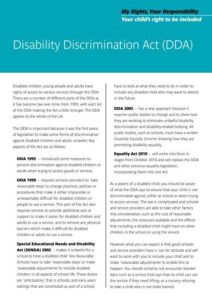Disability Discrimination
If you are unsure of what constitutes disability discrimination, you must first understand what the law says about it. Discrimination occurs when employers treat disabled employees less favorably than other employees, and may include unfair dismissal, denying advancement opportunities, or refusing to make reasonable accommodations. However, you can file a lawsuit against your employer if you are a victim of disability discrimination. Successful lawsuits can help you recoup lost wages, benefits, bonuses, or legal fees.
Disability is a mental or physical condition or progressive illness. It may include multiple sclerosis, HIV, and cancer. Discrimination is not limited to physical limitations, though. For example, an employer cannot pass a cancer patient over for a project based on the condition. In addition, disability discrimination extends beyond the accessibility of buildings and designated parking spaces. Even the simplest form of discrimination can be illegal. If you’re the victim of disability discrimination, you can turn to the Equality and Human Rights Commission for advice.
The Equality Act protects disabled employees from unlawful discrimination, regardless of their ability to perform their job. Discrimination takes many forms, and can involve hiring, firing, wages, assignments, training, or promotion. In some cases, it can even include harassment, which can result in retaliation. It’s always best to seek legal counsel before pursuing this option. If you suspect that your employer has discriminated against a disabled employee, you should file a complaint.
disability discrimination lawyer
Indirect discrimination is when an organisation adopts a policy or practice that unfairly affects disabled people. For example, a local authority might not produce an accessible version of its information leaflet for local residents. This type of discrimination is unlawful, unless it’s justified by the organisation’s policy or practice. However, if the employer has a legitimate reason for a particular policy or practice, it’s unlikely to be unlawful.

What Is Disability Discrimination?
While there is no specific definition of disability discrimination, it often takes the form of a number of unconscious behaviors. Discrimination can manifest itself in the form of a company’s refusal to hire a disabled employee or an individual’s unwillingness to perform a task that is impossible for another employee. In addition, employees can be victimised at work for complaining about a protected characteristic. While there’s no standard definition of what is considered “reasonable” in these circumstances, it’s important to seek legal advice if you suspect discrimination is taking place.
Despite widespread recognition, disability discrimination still persists in the workplace. Millions of employees are subject to sexual harassment, unfair labor practices, and even physical abuse by superiors. The American With Disabilities Act prohibits discrimination based on a “qualified” disability. In addition, it guarantees workers with disabilities the right to reasonable accommodations in the workplace. By following these laws, employers can avoid discrimination based on disability and create an inclusive work environment for all employees.
Besides preventing disability discrimination, employers must also provide avenues for reporting cases of this kind. These channels should be accessible to employees and employers should encourage reporting. If you suspect that disability discrimination has occurred, your employer must investigate allegations of disability discrimination thoroughly. A complaint will be investigated and acted upon if it is true. When it comes to hiring a disabled employee, it is best to start with a disability-inclusive workplace policy.